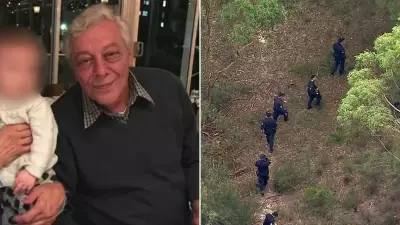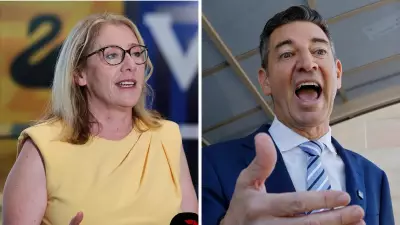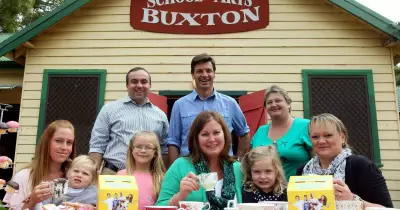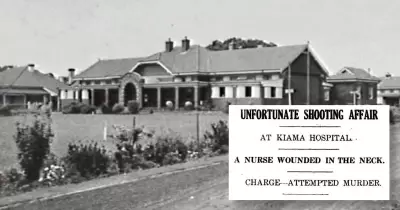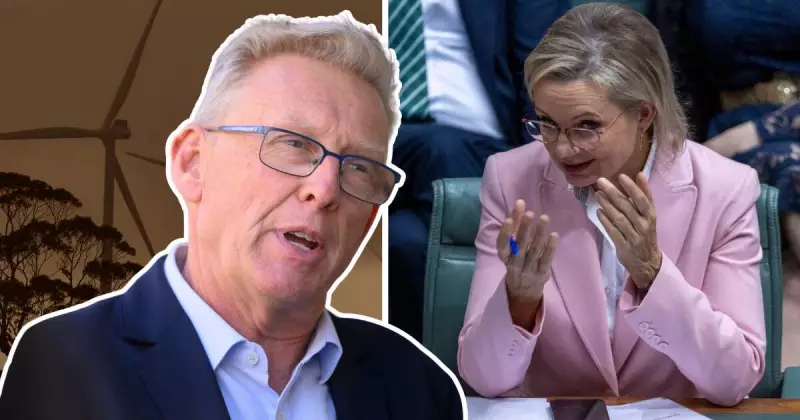
Canberra's newly minted Liberal leader Mark Parton faces his first major political test, one that could define his leadership and the party's electoral prospects for years to come. The critical question emerging in ACT politics is whether Parton will prioritize the views of his constituents or fall in line with his federal colleagues' increasingly unpopular climate stance.
The Climate Policy Crossroads
As Dr Devin Bowles, CEO of ACT Council of Social Service inc (ACTCOSS), argues in his recent analysis, any opposition party valuing strong democracy must present as a genuine alternative government. This fundamental principle appears to have been overlooked by federal Liberals in formulating climate and energy policy, creating concern that Canberra counterparts might repeat the same error under Parton's charismatic new leadership.
The highly educated ACT voting public demonstrates strong support for rapid action transitioning to renewables, understanding that benefits significantly outweigh costs. This alignment with community values presents both challenge and opportunity for the Canberra Liberals.
Economic and Environmental Imperatives
The International Energy Agency's most recent report corroborates domestic experts, clearly indicating that aggressive transition to renewables represents the most economically efficient path to lower energy bills. Unlike fossil fuel industry participants or renewable manufacturers, this respected neutral agency maintains complete objectivity without conflicts of interest.
Beyond financial considerations, rapid transition delivers substantial benefits including limiting climate change and its destructive weather patterns while enhancing Australia's international prestige. Unlike most states and territories, the ACT hosts no fossil-fuel production interests, making the Canberra Liberals' potential abandonment of net zero 2045 commitment particularly perplexing.
Political Opportunity or Crisis?
Federal Liberal Party support currently sits at historic lows and continues declining, especially within the ACT and specifically regarding climate-related policy. This situation needn't represent crisis for Canberra Liberals but could instead offer significant opportunity.
If Parton demonstrates willingness to differentiate from federal colleagues, the Canberra Liberals could position themselves as a party prioritizing constituent views over federal party alignment. Rather than prevaricating around energy transition commitment, Liberals could join Greens in critiquing the ACT government's failure to meet 2025 emissions targets.
The government faces legitimate questions regarding what different approaches will ensure they return to track, creating perfect opening for constructive opposition engagement.
Broader Implications for Democracy
Opposition parties bear public duty to remain competitive as this represents the optimal method for holding government accountable. By missing this golden opportunity to energize voters, Liberals effectively distance themselves from Greens with whom they share Legislative Assembly majority.
Competitive focus also prevents opposition drift toward political fringes and development of increasingly extreme views. Should Canberra Liberals render themselves unelectable through climate policy, they risk becoming increasingly extreme across other policy areas too.
Failure on this critical issue could limit candidate willingness to run for Liberals, potentially leading to selection of Legislative Assembly members and party members from increasingly extreme positions. Such dynamics could initiate downward spiral of diminishing electability.
Civil society cooperation represents another crucial reason for oppositions maintaining competitiveness. Perception of political risk often accompanies civil society work with opposition parties, especially when holding government accountable. Election prospects typically counterbalance this perceived risk, but this balancing effect disappears when opposition appears unelectable.
Parton's leadership offers opposition opportunity to improve this dynamic, but only through committed energy transition support. Extended opposition tenure undoubtedly proves dispiriting, but represents remarkable privilege and responsibility. Opposition MLAs and parties must resist temptation blindly following federal colleagues.
Canberrans deserve competitive opposition and genuinely Canberran Liberal party. Federal Liberals' climate policy announcement creates significant early leadership test for Parton. Those valuing robust democracy should hope he and his party successfully navigate this challenge.


